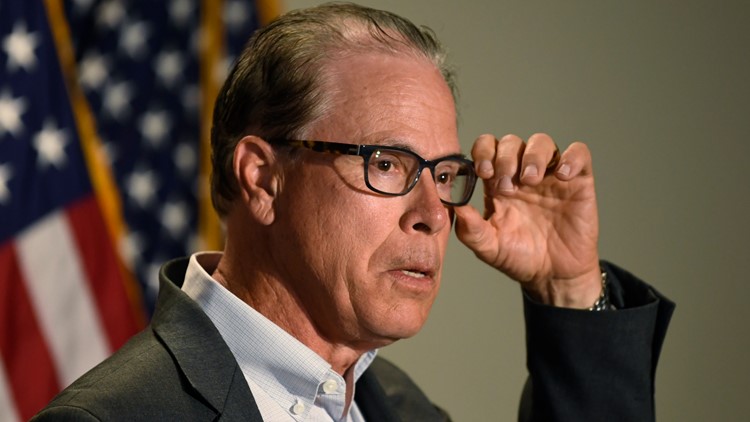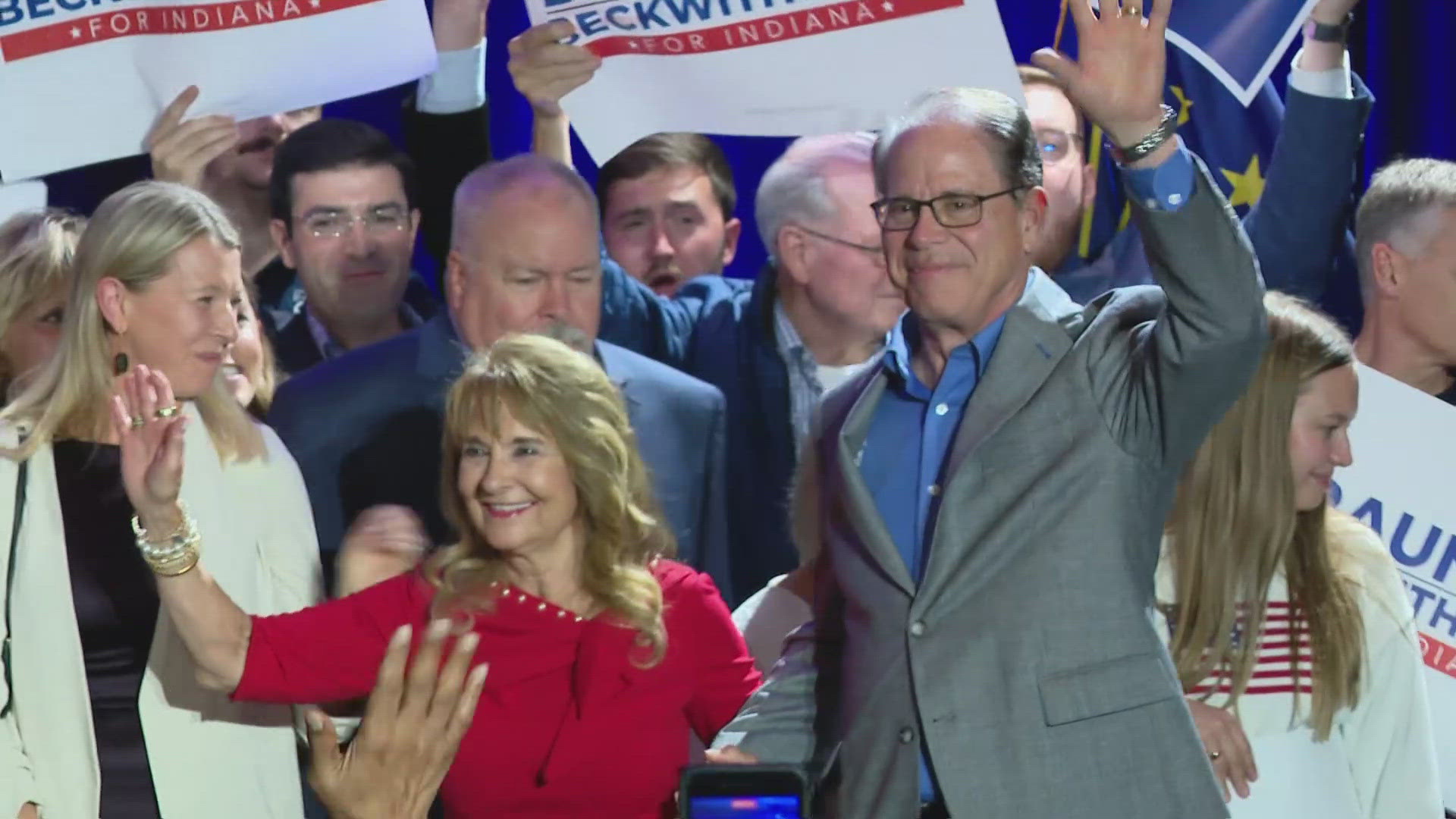INDIANAPOLIS — In the past six years, we’ve watched as four of Indiana’s 11 congressional seats were won by the highest bidder, including one of the state’s U.S. Senate seats. Will the governor’s office be next?
The actions this past week of two self-funding Republicans – U.S. Rep. Trey Hollingsworth and U.S. Sen. Mike Braun – beg the question of whether the 2024 cycle will become one of the biggest auctions in modern Hoosier political history for an open governor’s seat and a potential matchup with the most likely Democratic nominee, Joe Donnelly.
Braun held a presser at the Statehouse on Tuesday and was greeted with speculation that he will forego reelection to the Senate and seek the governor’s office in 2024. “When I decided to run for state representative … I wasn’t calculating,” Braun said. “That was a decision because I saw what can be done with an effective state government. I’ll make the decision post-midterms. I’m going to make the decision based on where I think I can help Hoosiers the most.”
Last week, Hollingsworth announced he wouldn’t seek reelection in November in the 9th District, saying, “I ran for Congress to return this government to the people from the career politicians who had broken it, and I will be damned if I become one in the process.” Hollingsworth said in his IndyStar op-ed that he said he would continue to serve the 9th District “in different ways,” suggesting a 2024 gubernatorial run where he would be a potential self-funder candidate.
Indiana has two of the wealthiest members of Congress: Braun, which the Center for Responsive Politics reported had a net worth of $136 million; and Rep. Hollingsworth was ninth on a Business Insider list with assets of $74.6 million.
Braun and Hollingsworth, along with U.S. Rep. Victoria Spartz, used personal wealth to write timely checks that funded what were originally considered long shot congressional campaigns.
In 2016, the unknown Hollingsworth and his father lent his campaign $3 million (out of $3.6 million raised), enough to win the 9th District Republican primary 33.5% to 25% for State Sen. Eric Houchin, 21.9% for Attorney General Greg Zoeller and 13% for State Sen. Brent Waltz.
In 2018, Braun loaned his campaign $5.5 million, according to the FEC, during the Republican primary which had been unprecedented in Hoosier politics. He had $2.42 million cash on hand as of March 31, compared to $1.86 million for Todd Rokita and $1.8 million for Luke Messer. The early money helped Braun win the primary with 41.2% of the vote, 11% more than Rokita, who finished second.
According to FEC reports, of the $19.66 million Braun raised for the 2018 cycle, $11,569,962 came from loans made by the candidate. His campaign made a $1,154,174 repayment to himself. The campaign had $5.32 million in total itemized individual contributions.
The access to early money was decisive. “We had the airspace four months by ourselves,” Braun said of the early personal loans that allowed him to pour 3,000 gross rating points into statewide TV that began in November, calling it "putting my own skin in the game." He added, “We knew that even if I set the world on fire with my fundraising, I would still have to put 85% in. That’s pretty well played out, but what’s played in my favor is their financing is crimped.”
Outside of the gubernatorial sphere, there were other self-funding congressional candidates. In the 4th District, State Rep. Jim Baird and Steve Braun both loaned their campaign $250,000, as did 2nd District Democrat Mel Hall while Yatish Joshi loaned his campaign $416,131. And in the 6th District, Muncie businessman Jonathan Lamb loaned his campaign $800,000 while raising just $42,000 in a loss to U.S. Rep. Greg Pence.
In 2020, Republican State Sen. Victoria Spartz loaned her 5th District campaign $1.27 million out of a total $3.27 million raised (including $150,000 in the final week of the campaign) as she emerged from a crowded primary with a 39.7% victory.
In the television age of Indiana politics, there were only three candidates who could have been described as capable of self-funding a gubernatorial campaign: Democrat John Hillenbrand III in 1980, Republican Mitch Daniels in 2004, and Democrat Woody Myers in 2020. None of them approached their campaigns as a self-funder. Hillenbrand and Daniels ran traditional campaigns, raising money from corporations, PACs and individual contributors.
The Republican field is expected to grow behind Lt. Gov. Suzanne Crouch and the self-funders for the right to take on former senator Joe Donnelly, the most likely Democratic nominee, who is expected to return to Indiana from his ambassadorship at the Vatican in late 2023. That Braun and Hollingsworth have the ability to access $5 million ... $10 million ... even $20 million by loaning their campaigns vast sums to win a statewide primary is new territory.
Crouch has a reputation as an able fundraiser and has told me if she runs, she’ll have ample funds. But the key could be how early that money comes in.
“Money is driving everything,” said former congressman Mark Souder in 2018. “If (Mike) Braun wins, following up on Hollingsworth’s win, wealthy candidates are likely to become even more dominant in Indiana.”
The columnist is publisher of Howey Politics Indiana at www.howeypolitics.com. Find Howey on Facebook and Twitter @hwypol.



